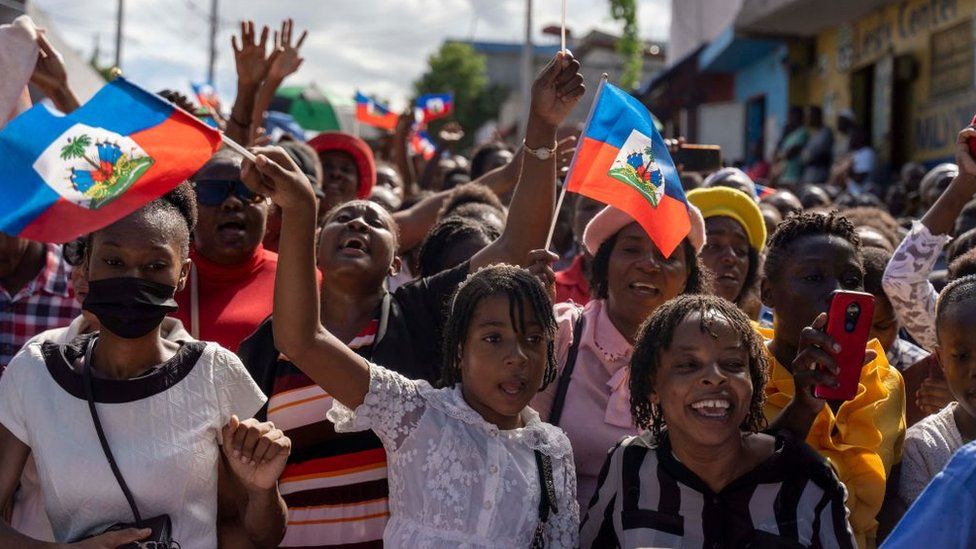In 2010 the earthquake hit Haiti. Quarter of a million people died. The world promised to help the Haitians rebuild a new and better country. Yet something happened that day that has left those promises and the future of Haiti hanging in the balance. On January the 12th, the day of the earthquake, the national penitentiary held 4,500 inmates – powerful gang leaders and hundreds of their foot soldiers, men accused of robbery, kidnapping and murder.
Terrified prisoners, packed 300 to a cell, tore open the gates with their bare hands facing them with the prison guards. As daylight faded the guards began to panic. Even prisoners crashed with falling masonry managed to crawl free. The escaped prisoners melted into the slums of the devastated capital, among them gangsters who’d once controlled much of Port au Prince. Their brutality and political power had turned Haiti into the epitome of a failed state. Now they had a chance to do so again.
Mario Andresol, Haiti’s police chief, on the day of the earthquake he narrowly escaped death as his headquarters collapsed. Nine months later a mob had stormed the police station and hacked a policeman to death. Three yearsbefore the earthquake Andresol took part in a bloody military onslaught on the gangs. Backed by UN forces he put many of their leaders in jail.
The gangsters who’d escaped from the national penitentiary discovered new territory to conquer – improvised camps built by the survivors of the earthquake – wherever they found space. Tent by tent the gangsters took control over the camps. Thousands of earthquake survivors have been raped in the camps and every month hundreds more were raped. The police have largely abandoned nearly a million Haitians who live in 1200 tent camps in and around Port au Prince.
After the earthquake international aid focused on the camps, but a year on they have become the gangs’ new power base. They have become a virgin territory for the gangs to go and conquer, and in many cases the gang leadership is actually spending more time in the camps than in the neighborhoods.
